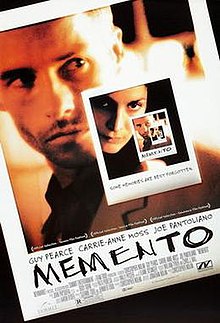Event Sourcing & CQRS ... & Android
GDG NL DevFest Season 2017Kalin Maldzhanski @djodjoni
Architectural Patterns ?
GUI Architectural Patterns ?
- MVC
- MVP
- MVVM
- MVI
Their Purpose:
- Model interaction between a human and a computer
- Do it in an effective way
Event Driven ?
What do we use already
- Functional Programming
- Event Streams/Reactive streams
- Push Notifications
- HTTP SSE text/event-stream
- WebSocket, Firebase, Deepstream
- Kafka, Spark, RabbitMQ
- Actor Model, Akka, Vertx
How are we using events?
Broadcast/Fire and Forget
- Notify "post viewed"
- Notify "http request failed"
- Request to send email confirmation
- Push Notifications
- UI events Notifications
State Transfer
- Live Data
- BehaviorSubject (RxBus)
- Room, SQLBrite
- Firebase
Request Data
- Query via event (event bus) and receive response
Event Sourcing?



"more than 7,000 years ago in Mesopotamia"
Not just Simple events
- Events are the result of a successfully executed command
- Events are immutable
- Events are things that happened in the past
- Events cannot be deleted
- Events store enough information to recover the complete system state
- Events are published to subscribers once they are stored
- Events have a single issuer/producer that belongs to a particular domain
ES - The Good
- Simplicity
- Flexibility
- Performance
- Audit Trail
ES - The Bad
- Not trivial to query
- Design of domain events required
- More storage space needed
- increased complexity when doing cross domain operations
- loading large event logs
ES - The Cool
- Intent Trail
- Extra Business Value, BI, machine learning, temporal queries
- Time Travel (undo)
- Debugging
- Testing
- Helps capturing more complete business domain
CQRS


Wait a minute I know that from DDD?
Domain Driven Design
Domain-driven design (DDD) is an approach to developing software for complex needs by deeply connecting the implementation to an evolving model of the core business concepts.http://dddcommunity.org/learning-ddd/what_is_ddd/
- Aggregate - autonomous cluster of associated objects
- Aggregate Root - the entry point to access the aggregate
- Value Object - immutable, identity-free data
- Entity - An object defined by its identity
- Bounded Context - isolated part of a larger system with its own Domain Model
- SAGA - coordinates long running process (process manager)
ES Considerations
How to delete and edit events?
- retroactove events - reject or correct previous events
- Rewrite Event Log
What if there are 1 billion events to replay?
- Snapshots
- Rewrite event log
- Better design aggregates
Event types and versioning?
- Rewrite Event Log
- design and document good event taxonomy
- ex: "https://myapp.io/tax/incrementQty"
CQRS & Command handling
- Commands can be rejected or accepted
- Command validation
- Domain validation
- Validation across multiple domains/aggregates
- Use Query module
- Use Process Managers
- distribute validation workload across shards
- Complex Domains
- Distributed Systems
- Task Based Applications

override fun completeTask(task: Task) {
checkNotNull(task)
mTasksRemoteDataSource.completeTask(task)
mTasksLocalDataSource.completeTask(task)
val completedTask = Task(task.title, task.description, task.id, true)
// Do in memory cache update to keep the app UI up to date
if (mCachedTasks == null) {
mCachedTasks = LinkedHashMap()
}
mCachedTasks!!.put(task.id, completedTask)
}
override fun getTasks(): Flowable<List<Task>> {
// Respond immediately with cache if available and not dirty
if (mCachedTasks != null && !mCacheIsDirty) {
return Flowable.fromIterable(mCachedTasks!!.values).toList().toFlowable()
} else if (mCachedTasks == null) {
mCachedTasks = LinkedHashMap()
}
val remoteTasks = andSaveRemoteTasks
if (mCacheIsDirty) {
return remoteTasks
} else {
// Query the local storage if available. If not, query the network.
val localTasks = andCacheLocalTasks
return Flowable.concat(localTasks, remoteTasks)
.filter { tasks -> !tasks.isEmpty() }
.firstOrError()
.toFlowable()
}
}

data class Command(
val subjectID: String?,
val userID: String?,
val datetime: Long,
val cmdID: String,
val cmdData: Any?
)
data class Event(
val subjectID: String?,
val userID: String?,
val datetime: Long,
val eventHash: String,
val eventID: String,
val eventData: Any?
)
class TaskDetailPresenter(...
...
fun deleteTask()
//deleteTask / taskDeleted
fun activateTask()
//activateTask / taskActivated
fun completeTask()
//completeTask / taskCompleted
class AddEditTaskPresenter
...
fun saveTask(title: String, description: String)
//updateTitle / titleUpdated
//updateContent / contentUpdated
class TasksPresenter(...
...
fun addNewTask()
//createTask / taskCreated
class TasksAR {
fun createTask() {}
fun updateTitle(taskID:Int, title: String) {}
fun updateContent(taskID:Int, content: String) {}
fun activateTask(taskID:Int) {}
fun completeTask(taskID:Int) {}
fun deleteTask(taskID:Int) {}
}
@Entity(tableName = "events")
data class Event(
@ColumnInfo(name = "subjectID")
var subjectID: String?,
@ColumnInfo(name = "userID")
var userID: String?,
@ColumnInfo(name = "datetime")
var datetime: Long,
@ColumnInfo(name = "eventHash")
var eventHash: String,
@ColumnInfo(name = "eventID")
var eventID: String,
@ColumnInfo(name = "eventData")
var eventData: Any?
)
@Dao interface EventsPublisher {
@Insert
fun publishEvent(task: Event)
}
class TasksAR
@Inject constructor(val eventsPublisher:EventsPublisher) {
fun createTask() {
eventsPublisher.publishEvent(Event("createTask"))
}
fun updateTitle(taskID:Int, title:String) {
doValidate("updateTitle", taskID, title)
eventsPublisher.publishEvent(Event("updateTitle", taskID, title))
}
fun updateContent(taskID:Int, content:String) {
doValidate("createTask", taskID, content)
eventsPublisher.publishEvent(Event("createTask", taskID, content))
}
fun activateTask(taskID:Int) {
doValidate("createTask", taskID)
eventsPublisher.publishEvent(Event("createTask", taskID))
}
fun comcompleteTask(taskID:Int) {
doValidate("createTask", taskID)
eventsPublisher.publishEvent(Event("createTask", taskID))
}
fun deleteTask(taskID:Int) {
doValidate("createTask", taskID)
eventsPublisher.publishEvent(Event("createTask", taskID))
}
}
- Easy and Serverless
- Reactive - can subscribe to events
- Can easily hook up to Cloud Functions


viewHolder.bindToPost(model, new View.OnClickListener() {
@Override
public void onClick(View starView) {
// Need to write to both places the post is stored
DatabaseReference globalPostRef = mDatabase.child("posts").child(postRef.getKey());
DatabaseReference userPostRef = mDatabase.child("user-posts").child(model.uid).child(postRef.getKey());
// Run two transactions
onStarClicked(globalPostRef);
onStarClicked(userPostRef);
}
});
and we need to listen for incoming events
FirebaseDatabase.getInstance().getReference().child("events")
.addChildEventListener(new ChildEventListener()
{
fun onChildAdded(dataSnapshot: DataSnapshot, s: String) {
postCommand(Command(dataSnapshot))
}
}
functions.database.ref('/events/{eventID}')
.onWrite(event => {
const newVal = process(event.data);
makeHttpCall(newVal);
return readModel.ref.child(event.params.subjectId).set(newVal);
});
// TODO: Many more options and scenarios to consider.
Takeaways
- Be pragmatic but keep your eyes open
- Model your domain not your data storage
- Think functional when things are functional
- Actor Model is cool
- Divide only when needed, but always consider it
- Process managers are great when they can fit in your head